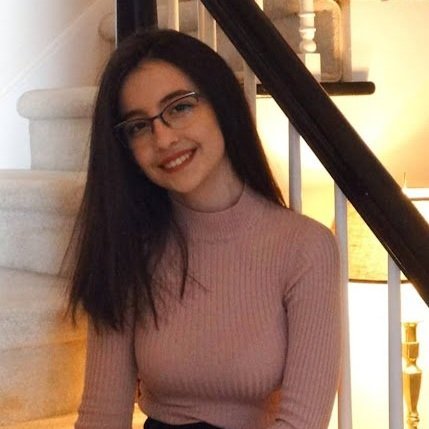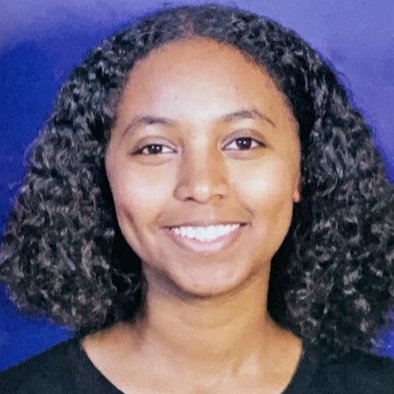Vaccine Inequity: Perspectives of Global Youth
According to the UNDP’s Global Dashboard for COVID-19 Vaccine Equity, richer countries have been able to roll out vaccinations faster and experience quicker economic recovery. As of August 18, 2021, high income countries have an average of 55.8% of the general population (or 1 in 2 people) vaccinated with at least one dose [1]. Meanwhile, in some poorer countries, frontline healthcare workers and clinically vulnerable people around the world still do not have access to vaccines, with some countries currently having vaccination rate as low as 1.94% [1]. With the surge of the Delta variant, this poses many potential social, economic, and health threats for already vulnerable populations around the world.
In this article, Youth STEM Matters is interviewing four young people from around the world - Aurora from Bangladesh, Neda from Bulgaria, Fernanda from Brazil, and Kidist from Ethiopia - to speak about their perspective regarding the issue of vaccine inequity and how it's affecting their countries.
Aurora Rahman
17, she/her
Dhaka, Bangladesh
Fernanda Morais
16, she/her
Curitiba, Brazil
Neda Dimolareva
17, she/her
Veliko Tarnovo, Bulgaria
Kidist Fesseha
16, she/her
Addis Ababa, Ethiopia
How has the COVID-19 pandemic impacted you and your family in the past year?
Aurora (Bangladesh): Since the pandemic begins, my family has had many health and safety concerns. Since both my parents are doctors, they were always exposed to it. We’ve also had other family members exposed to COVID. I have seen from personal experience the health crisis we have here in Bangladesh in combating this disease.
Neda (Bulgaria): COVID-19 had a negative impact on my family, as it had for many others. It forced us to be separated and not see our extended family for months. Less working hours have also been a problem for some members of my family since that resulted in difficult financial situations at times.
Fernanda (Brazil): Routine-wise, there was not much of a change for me, except for staying more at home and doing online school/work. There were no lockdown measures imposed by the national government (in fact, even though several states and cities imposed their own lockdown measures, the national government discouraged doing so), but my family considered it more safe to simply stay at home. Outside of that, we did see an income decrease, which my family was fortunate to not be destabilized by, but combined with the increasing prices of goods (especially in grocery stores) has driven many lower income families to unprecedented levels of poverty.
Kidist (Ethiopia): COVID-19 has affected mine and my family’s life in various ways. I was fortunate enough to be able to go to school remotely while my siblings couldn’t go to school since many schools in Ethiopia were closed. The virus has also weakened Ethiopia’s construction industry, which my dad is a part of.
How has COVID-19 impacted your country? How has it impacted specific communities in your country that you know of in the past year?
Aurora (Bangladesh): Until recently, COVID-19 was happening on a small scale here. With the emergence of the Delta variant, cases have skyrocketed. Lockdowns have been enforced all over the country and this has impacted a majority of the population living under poverty: they’ve lost access to jobs and are struggling to make ends meet. These same people also have an extremely high risk of being exposed to COVID-19. Due to the loss of jobs, they can't afford to pay hospital bills, which unfortunately is resulting in a lot of deaths.
Neda (Bulgaria): COVID-19 affected Bulgaria really badly, especially in the beginning. Many people lost their jobs and many lost their lives. Our hospitals were not really fit to accommodate so many people with this condition in the beginning, which led to many difficulties. I think that the people that were most affected by the COVID-19 pandemic in my country were elderly people and lower-income people.
Fernanda (Brazil): Brazil was very badly impacted by the COVID-19 pandemic, with cases growing continuously, and no mandatory precaution measures to curb the spread, however, I believe the families with low income were the ones that were the most impacted. Many of the lower income providers have jobs that can't be transferred to the online environment. Therefore, many of them lost their jobs, and even with the monthly federal assistance check (now at R$150.00, or about US$30), they are not able to pay for all of their expenses. In addition, the indigenous communities were also hit by the pandemic, and had a larger mortality rate than other communities, although several new governmental policies (unrelated to the pandemic) definitely have already made their situation harder.
Kidist (Ethiopia): Many schools around the country were closed for a long period, therefore the school year was pushed into parts of summer 2021. So far (as of August 2021) there have been 286,000 COVID-19 cases and 4,450 deaths. [2] I was surprised by the low number of deaths and positive cases considering the ongoing political conflict, and how tight knit our communities are. However Tigray (the northern region of Ethiopia) has and is continuing to be impacted by COVID-19 as a result of the federal government cutting COVID-19 relief and other factors.
Now that the COVID-19 vaccine is available, do you think there is the issue of vaccine inequality in your country?
Aurora (Bangladesh): Yes. Bangladesh doesn’t have enough vaccines for the whole population. In addition, we don’t have a proper method to follow in order to vaccinate people. Young adults are getting the vaccine while elders still haven’t received it. People living under the poverty line aren’t getting proper access to vaccines and an effort isn’t being made to educate them either. The problem lies mainly within the fact that the government hasn’t created a concrete plan for proper vaccine distribution. As a developing country, Bangladesh doesn’t have the facility to make their own vaccines, and lack of help from developed countries is also contributing to this.
Neda (Bulgaria): I think that in the beginning, there was an inequality. It was difficult for many people to get vaccinated and there were very limited choices. With time, I think things have gotten significantly better, however people under 18 years old still cannot get the vaccine.
Fernanda (Brazil): I believe that the way vaccines are being applied in Brazil (if followed correctly), leaves little space for inequality. Vaccination days are divided by age groups, beginning with health workers, followed by the elderly, and those with chronic illness who are over 18 years old, and then "regular" adults. Vaccines are only available in public health units, and are completely free, so people of all incomes can get vaccinated, and since there is no way of getting a vaccine from private institutions, even high income families can't (legally) pay to get vaccinated before others. Indigenous communities have also received priority in getting vaccinated, and vaccines were taken to their respective reservations. The process has been very slow due to the inefficacy of the government in buying the vaccines, but this method doesn't appear to cause inequality in distribution, although I can't speak much of the actual diversity of the people getting vaccinated, since that data is not published and I've not yet been to a vaccination place, since it's not safe, and I'm not eligible to get vaccinated yet.
Kidist (Ethiopia): Definitely. Seeing how the government has completely cut off phone service and electricity in Tigray, I don’t think the vaccine will be distributed throughout northern Ethiopia. I think the problem lies within the fact that many Ethiopian leaders put their conflicts before the well-being of the people.
If you could become a leader in your country, what would you do to try to solve the issue of vaccine inequality? What would you do to reduce the impact of COVID-19 on your country?
Aurora (Bangladesh): Along with lockdowns, I would make masks mandatory everywhere. I would also try my best to make sure people are practicing social distancing. In addition, I would try to create programs so that people (especially those with limited access to education) have an idea about the severity of this virus and what they can do to limit the spread. I would make a solid plan for vaccine distribution, and make sure almost all people from a particular group are vaccinated before moving on to the next one.
Neda (Bulgaria): If I was the leader of Bulgaria, I would try to get as much information about the vaccines as possible out there. I believe that many people are still scared to get vaccinated because they believe false theories, and by educating them, that could change.
Fernanda (Brazil): I would have invested more on precaution measures, such as mandatory lockdown measures, nationally, and requiring that the population wears masks and practices social distancing. I'd have bought vaccines a lot faster than the government did, and begin vaccinations sooner. To aid more impacted communities, I would have maintained the government's assistance check at their initial value (R$600.00, or US$110.00), and made it illegal for employers of low income families to fire them during the pandemic, so that those families don't completely lose their income.
Kidist (Ethiopia): I would work to distribute the vaccine eventually throughout the country, and make sure millions of people aren’t blamed for their representatives' actions. I would work to solve and prevent future conflicts while also uniting the country. I would also enforce safety protocols like encouraging people to wear masks, discouraging large gatherings, and creating a COVID-19 tax relief and stimulus checks.
Thank you so much to Aurora, Neda, Fernanda and Kidist for joining our interview and sharing your insights and thoughts on this topic!
References
[1] UNDP, “Global Dashboard for Vaccine Equity,” COVID-19 Data Futures Platform, n.d. [Online] Available: https://data.undp.org/vaccine-equity/. [Accessed 12 August, 2021].
[2] E. Dong, h. Du and L. Gardner, "COVID-19 Data Repository by the Center for Systems Science and Engineering (CSSE) at Johns Hopkins University,” GitHub, August 12, 2021. [Online]. Available: https://github.com/CSSEGISandData/COVID-19. [Accessed 12 August, 2021].





